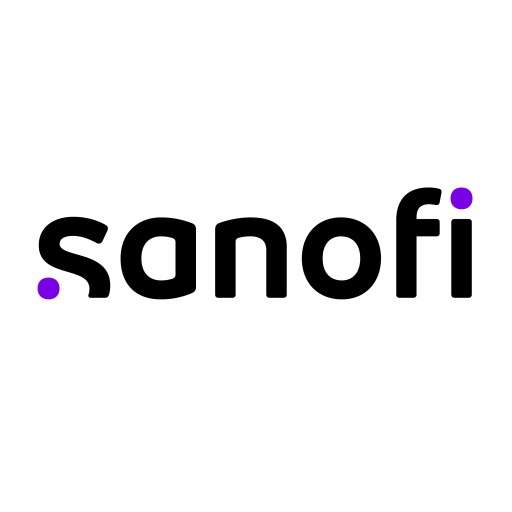Since its founding in 1973, Sanofi has relentlessly pushed the boundaries of medicine. With a mission to deliver life-saving medical treatments and vaccines to people everywhere, Sanofi relies on its cutting-edge science and manufacturing to make the impossible possible for millions of people around the world. When faced with the limitations of its on-premises infrastructure, Sanofi adopted a hybrid cloud strategy and chose Microsoft Azure as its cloud platform, gaining the speed, agility, and reliability necessary for innovation.
Azure gives Sanofi the ability to easily scale workloads up and down as needed in dynamic ways.
Sam Chenaur: Vice President and Global Head of Infrastructure
Sanofi
A need for speed
As a global pharmaceutical company, Sanofi must follow stringent compliance, cybersecurity, and quality control requirements. To uphold those requirements, Sanofi has kept data and applications on-premises.
But on-premises infrastructures are costly, cumbersome, and can suffer from slow performance. Outages are another potential disadvantage to physical infrastructures, slowing the ability to launch products in a timely fashion. For instance, if a mission-critical app went down, more time and resources would be spent fixing the problem, rather than on research and development.
To deliver on its mission of transforming the practice of medicine, Sanofi needed a way to work faster and more efficiently while maintaining compliance requirements. The answer? A hybrid cloud strategy, which would allow Sanofi to benefit from cloud-specific advantages like speed, agility, and scale while retaining on-premises control.
After reviewing several options, Sanofi chose Microsoft Azure as its strategic cloud platform. With 70 percent of Sanofi’s network already on Microsoft Windows Servers, this was an easy choice. Migrating to Azure would help Sanofi reduce costs and give them the option to explore open source technology approaches with Linux support.
From months to hours
Undergoing a large-scale migration is no small feat. To help ensure a smooth migration, Sanofi worked with Mobiz, a Microsoft Partner Network member specializing in cloud infrastructure and network automation, digital transformation, and data protection. Sanofi and Mobiz settled on a digital transformation plan that includes migrating more than 15,000 servers and 1,800 apps over the next few years and chose Azure Migrate and Azure VMware Solution to move the workloads.
Despite being early in its migration journey, Sanofi is already seeing major benefits. Thanks to the global presence of Azure, Sanofi is now able to set up new regions in record time at a fraction of the cost. “With help from Microsoft and Mobiz, we were able to deliver a fully qualified landing zone in Azure in one-third the time and at one-third the budget compared to previous cloud efforts. For example, Sanofi can deploy a new fully qualified landing zone in a matter of hours, when previously it would take us six months or more to open a new site or country,” says Sam Chenaur, Vice President and Global Head of Infrastructure at Sanofi.
Sanofi is also experiencing fewer outages and faster recovery times, reducing their mean time to recovery (MTTR) by 300-500 percent. Overall, these improvements allow Sanofi to manufacture and deliver high-quality medicine without interruption.
Automate everything
So why has Sanofi’s migration been successful thus far? Automation.
As Hamad Riaz, Chief Executive Officer at Mobiz, puts it: “Our goal at Sanofi is to automate everything. So, when we say ‘100-percent automation’ we mean building automation around infrastructure and building automation engines.”
Using the Microsoft Cloud Adoption Framework, Sanofi can automatically deploy new infrastructure regions using baseline templates with all necessary requirements automatically added on. “With Azure, we can tie everything together in a single pane of glass: business requirements, compliance, and infrastructure—everything,” says Riaz. “Azure is the most tightly integrated product on the market today.”
From speeding up app development through templates to reducing errors, Sanofi is using Azure automation to work faster and more efficiently. Developers are empowered to build new apps—quickly—using templates, as well as tear down and rebuild outage-prone applications with minimal effort. “Azure gives Sanofi the ability to easily scale workloads up and down as needed in dynamic ways,” says Chenaur.
With the Azure hybrid cloud offering, Sanofi employees can work faster and more efficiently, which means a faster time-to-market for bringing life-saving medicines to patients. “Digital transformation at Sanofi is driving a more agile business and a faster time to market to manufacture and deliver medicine,” says Chenaur. “The future with Microsoft is incredibly exciting and the possibilities are endless.”
With help from Microsoft and Mobiz, we were able to deliver a fully qualified landing zone in Azure in one-third the time and at one-third the budget compared to previous cloud efforts.
Sam Chenaur: Vice President and Global Head of Infrastructure,
Sanofi
